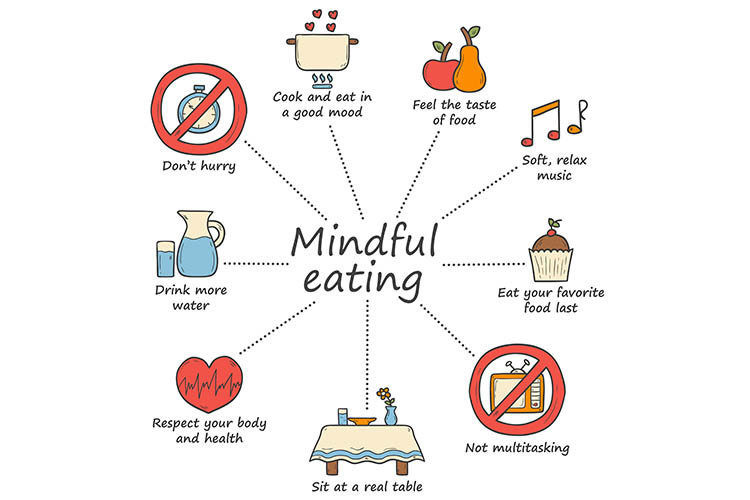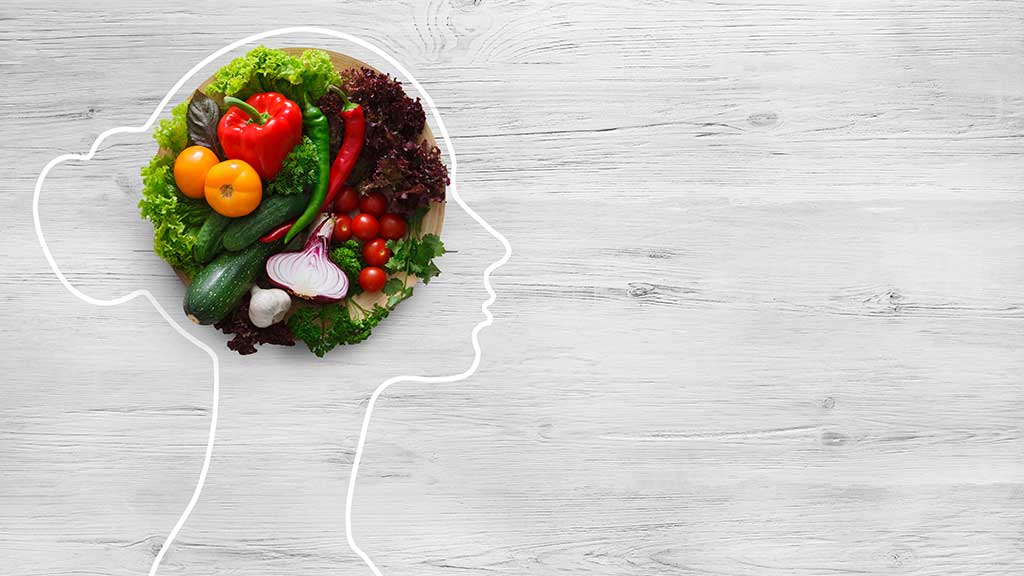The concept of mindful eating has been gaining popularity in recent years, and as the global epidemic of obesity - referred to as ‘globesity‘ by the World Health Organization (WHO) - persists, it’s not difficult to see why (O’Reilly et al. 2014; WHO 2023).
The Effects of Globesity
The WHO asserts that while obesity is a visible issue, it is often neglected. There are concerns that serious diet-related health detriments will arise if the issue of obesity is not addressed as soon as possible, resulting in preventable illness or premature death (WHO 2023).
Diet-related health conditions that may develop include:
- Diabetes mellitus
- Cardiovascular disease
- Hypertension
- Stroke
- Certain types of cancer.
(WHO 2023)
In Australia alone, 67% of adults and 25% of children are living with overweight or obesity. Furthermore, people living in remote or ‘outer regional’ Australia are more likely to be overweight or obese than those from Australia’s main cities (AIHW 2023).
The Role of Mindful Eating
A significant number of studies on mindfulness-based interventions (MBIs) found that they facilitated improvement in targeted eating behaviours such as binge-eating, emotional eating and external eating (O’Reilly et al. 2014).
Similarly, another systematic review found that attentive eating can help influence dietary intake, which may assist in weight loss without the need for calorie counting (Robinson et al. 2013).
Yet another study found that mindfulness contributed to reductions in abdominal fat (Daubenmier et al. 2011).
What Exactly is Mindful Eating?
Evidently, there is an emerging movement towards mindful eating practices in weight management. But what does ‘mindful eating’ actually involve?
- Non-judgmental eating
- Acceptance of feelings whilst eating or within eating locations
- Self-awareness of hunger cues and becoming satisfied
- Deciding which foods to eat and what amount to eat
- Opting for nutritious and enjoyable foods
- Not performing other activities whilst eating (e.g. sitting down to have a meal instead of eating whilst working)
- Understanding the consequences of not adhering to mindful-eating practices (e.g. over-indulgence in unhealthy foods creating the potential for weight gain, ill health or undernutrition).
(Lofgren 2015)

Research Into Mindful Eating
Weight gain and weight regain after successfully losing weight may result from eating behaviours such as binge-eating, emotional eating, external eating and craving-related eating (Grucza et al., cited in O’Reilly et al. 2014).
Unfortunately, research suggests that most people lose weight, regain it and end up back at their initial weight or even exceed it within about five years (O’Reilly et al. 2014).
A systematic review found that although 13 out of the 19 reviewed studies demonstrated weight loss among MBI participants, it was unclear to what extent these weight loss changes resulted directly from mindfulness. These researchers suggested that future research is needed regarding contributing factors (e.g. biology and psychology) to the relationship between weight loss and mindfulness. (Olson & Emery 2014).
Another field that requires further research is why certain people have poorer inhibitory control than others (Hogenkamp et al. 2015).
A study of long-term weight loss in individuals post-Roux-en-Y Bypass bariatric surgery demonstrated that a significant number of people struggled with sustainable weight loss. These individuals were found to have less inhibitory control than participants who managed to sustain weight management following surgery, thus suggesting that cognitive behaviour therapies post-bariatric surgery may aid in sustaining weight management (Hogenkamp et al. 2015).
Conclusion
Although it is clear that further research is required into the role of mindful eating in weight loss, several studies have shown promising results. Whether MBIs can have a widespread impact on globesity is still to be seen.
Test Your Knowledge
Question 1 of 3
True or false: Australians from major cities are more likely to be living with overweight or obesity than those from outer regional Australia.
Topics
References
- Australian Institute of Health and Welfare 2023, Overweight and Obesity, Australian Government, viewed 1 June 2023, https://www.aihw.gov.au/reports/overweight-obesity/overweight-and-obesity/contents/overweight-and-obesity
- Daubenmier, J et al. 2011, ‘Mindfulness Intervention for Stress Eating to Reduce Cortisol and Abdominal Fat among Overweight and Obese Women: An Exploratory Randomized Controlled Study’, Journal of Obesity, vol. 2011, no. 651936, viewed 4 June 2020, https://www.hindawi.com/journals/jobe/2011/651936/
- Hogenkamp, PS, Sundbom, M, Nilsson, VC, Benedict, C & Schiöth, HB 2015, ‘Patients Lacking Sustainable Long-Term Weight Loss after Gastric Bypass Surgery Show Signs of Decreased Inhibitory Control of Prepotent Responses’, PLoS ONE, vol. 10, no. 3, pp 1-8, viewed 4 June 2020, http://journals.plos.org/plosone/article/file?id=10.1371/journal.pone.0119896&type=printable
- Lofgren, IE 2015, ‘Mindful Eating: An Emerging Approach for Healthy Weight Management', American Journal of Lifestyle Medicine, vol. 9, no. 3, viewed 4 June 2020, http://journals.sagepub.com/doi/abs/10.1177/1559827615569684
- Olson, KL & Emery, CF 2014, ‘Mindfulness and Weight Loss: A Systematic Review’, Psychosomatic Medicine, vol. 77, no. 1, viewed 4 June 2020, https://journals.lww.com/psychosomaticmedicine/Abstract/2015/01000/Mindfulness_and_Weight_Loss__A_Systematic_Review.9.aspx
- O’Reilly, GA, Cook, L, Spruijt-Metz, D & Black DS 2014, ‘Mindfulness-Based Interventions for Obesity-Related Eating Behaviours: A Literature Review’, Obesity Reviews, vol. 15, no. 6, viewed 4 June 2020, https://www.ncbi.nlm.nih.gov/pubmed/24636206
- Robinson, E et al. S 2013, ‘Eating Attentively: A Systematic Review and Meta-Analysis of the Effect of Food Intake Memory and Awareness on Eating’, American Journal of Clinical Nutrition, vol. 112, no. 4, viewed 1 June 2023,https://www.sciencedirect.com/science/article/pii/S0002916523054679?via%3Dihub
- World Health Organisation 2016, Overweight and Obesity, WHO, Geneva, viewed 4 June 2020, http://www.who.int/mediacentre/factsheets/fs311/en/
- World Health Organisation 2023, Controlling the Global Obesity Epidemic, WHO, viewed 1 June 2023, http://www.who.int/nutrition/topics/obesity/en/
 New
New 
